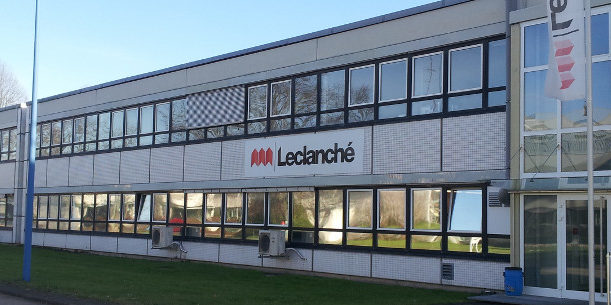Under the agreement, announced yesterday, Exide Industries, India’s largest manufacturer of lead acid batteries, and energy storage solutions company, Leclanché will partner to set up a module and battery pack assembly line, which is set to be operational by the second quarter of 2019, and a Li-ion cell production plant, slated to be operational by mid-2020.
“In the intervening period, cells will be sourced from Leclanché's plant in Willstätt, Germany,” said the two parties in a statement released. According to the Swiss company's website, all of its Lithium Titanate and Lithium Graphite/NMC cells are currently produced at the Willstätt location, where Leclanché has been active since 2011.
A spokesperson for Leclanché could not provide any further details, other than to say that from the company’s perspective, the deal is a “milestone” and a big step forward for its operations in India. Exide, meanwhile, could not be immediately reached.
In a filing to the Bombay Stock Exchange (BSE), however, Exide said it will make an initial capital contribution of Rs. 3,74,950 (around US$5,438) for a 74.99% stake – meaning the JVC will become an Exide subsidiary – while Leclanché will invest Rs. 1,25,050 for a 25.01% share.
Meanwhile, on June 25, Leclanché announced that its largest shareholder, FEFAM, had approved an investment of up to CHF 20 million (around US$20 million) for a JV in India. This follows the latter's share capital increase of CHF 16.5 million announced on June 6.
Storage solutions
While Exide will make use of its extensive sales network and branding in the Indian market, Leclanché will grant a license for the use of its “latest and most efficient” technology for the manufacturing of Li-ion batteries, module making and other, associated systems.
“As a result of this unique combination, the JV is ideally positioned to be a leading provider of storage solutions for electric vehicles and energy storage applications in India and will also contribute to developing solutions to increase the amount of renewable energy that is used and reduce India's dependence on fossil fuels,” they said in the statement.
Two days prior to the signing of the agreement, Exide announced in a separate filing that it had entered into an asset purchase agreement with Tudor India Private Limited for its factory, located in District Sabarkantha, Gujarat.
Popular content
According to the LiveMint, the purchase price for the 15.9 acre factory is expected to be less than Rs25 crore (around US$362,658), while the transaction should be closed within a month. The deal represents its first acquisition in 20 years, it added.
Domestic manufacturing plans
The Indian Government is currently actively pushing to establish a strong domestic manufacturing industry to support its plans to become the leading renewable energy country in the world.
In the latest move, India’s Minister of Power, Mr. RK Singh has confirmed that all future solar bids will be combined with manufacturing. “We will bid out capacity plus the commitment to manufacture up to 50% of the capacity, that is, manufacturing of solar cells,” he said.
He added, “We are going to be one of the biggest markets of storage in the world. We will add storage to the bid gradually. There will also be an obligation to manufacture storage (system) up to a certain percentage.”
At last week’s The Smarter E in Munich, Germany, meanwhile, Shri Anand Kumar, Secretary of India’s Ministry of New and Renewable Energy (MNRE) said it is imperative India becomes a manufacturing hub for solar and storage.
Days later, the MNRE announced a massive 100 GW solar tender, which will also include solar manufacturing and storage. On June 11, meanwhile, the country’s Ministry of Science & Technology made an announcement disclosing plans to bring lithium-ion cell manufacturing to India.
This content is protected by copyright and may not be reused. If you want to cooperate with us and would like to reuse some of our content, please contact: editors@pv-magazine.com.



Wonder if Exide Industries is keeping an eye on the Gridtential technology to enhance its position with lead-acid batteries and its production of the Ecoult/UltraBatteries?